
Cave In is an American rock band that formed in 1995 in Methuen, Massachusetts. The band's lineup solidified with the 1998 release of Until Your Heart Stops through Hydra Head Records, and their early albums were prominent in the metalcore scene. The band later experimented with other genres, receiving mainstream recognition for their 2003 RCA Records album Antenna and its lead single "Anchor," which had an overall alternative rock style. The group went on hiatus in 2006, later reforming in 2009 with the release of the Planets of Old EP, followed by the White Silence LP in 2011, both of which saw a return to Cave In's earlier and heavier sound.

Converge is an American metalcore band formed by vocalist and artist Jacob Bannon and guitarist and producer Kurt Ballou in Salem, Massachusetts in 1990. While recording their landmark fourth album Jane Doe in 2001, the group became a four-piece with the departure of guitarist Aaron Dalbec and the addition of bassist Nate Newton and drummer Ben Koller. This lineup has remained intact since. The members have also been involved in various side-projects and collaborations, including the bands Supermachiner (Bannon), Old Man Gloom (Newton), and Mutoid Man (Koller). With their extremely aggressive and boundary-pushing sound, rooted in hardcore and heavy metal, they are pioneers of metalcore and its subgenre mathcore.

Old Man Gloom is an American post-metal band originally formed in Santa Fe, New Mexico, but now based in Massachusetts. The group, formed by Aaron Turner of Isis and Santos Montano, expanded to become a sort of supergroup in the Boston hardcore and metalcore scene.
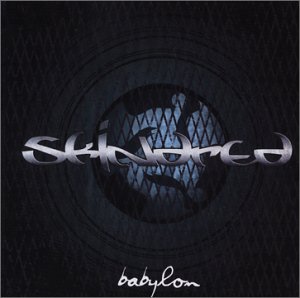
Babylon is the debut studio album by Welsh heavy metal band Skindred. The band was formed from members of the disbanded band Dub War, including leader Benji Webbe, and signed to RCA Records in 2002, who released the album on 3 July. The band felt that they were being treated poorly by the label, and left in 2004, signing with Bieler Bros. Records, who released the album internationally in association with Lava Records. Each version released featured a significantly altered track listing.
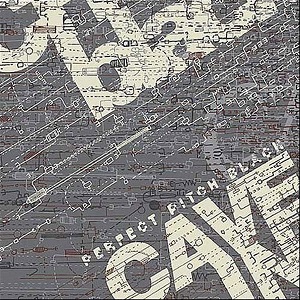
Perfect Pitch Black is the fourth studio album by American rock band Cave In. The album was released on September 13, 2005 through Hydra Head Records, and was the band's final release before going on hiatus in 2006. Cave In later reformed in 2009 and released the EP, Planets of Old.

Tides of Tomorrow is an EP by alternative rock band Cave In, released through Hydra Head Records on October 15, 2002.

Creative Eclipses is a 1999 EP by alternative rock band Cave In, released on Hydra Head Records. Noted for the band's experimentation with their already established sound, the release hints at the musical direction the group would take for their next full-length album Jupiter. A remastered edition including bonus tracks was released on 12" vinyl on April 7, 2015.
Zozobra was an American sludge metal band that was first conceived by Caleb Scofield during 2006. He was joined by Santos Montano for the band's first release, Harmonic Tremors, in 2007. Early Zozobra recordings had a lot in common with the experimental-hardcore of Old Man Gloom and symbolically shares a synonymous name. Zozobra toured the United States with Isis and Jesu in early 2007.

Until Your Heart Stops is the debut album by metalcore band Cave In. It was released in 1998 on Hydra Head Records. Until Your Heart Stops has been regarded as a landmark release in the metallic hardcore genre.

Kid Kilowatt was an American rock supergroup formed in 1996 and dissolved in 1997, including members of Cave In, Converge and Piebald. They wrote only one album, Guitar Method, first released by Second Nature Recordings in 2003.
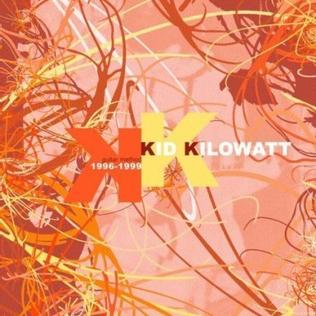
Guitar Method is the only album by indie supergroup Kid Kilowatt, initially released by Second Nature Recordings on vinyl in 2003, and later on CD by Hydra Head Records in 2004. It consists of material recorded over a period of three years, including after the band's breakup. Still, it did not see release as a whole for over four years after the last track was recorded.
Caleb Mark Scofield was an American musician who was a bassist and singer mostly known for the alternative metal band Cave In, and his own sludge metal band Zozobra. He was killed in an auto accident. Caleb was also a part of the sludge band Old Man Gloom.
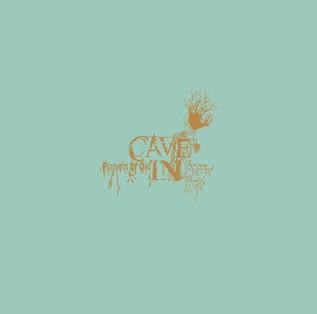
Planets of Old is an extended play released by American alternative rock band Cave In. This EP is the first release of new material from the band since their split in 2006. Additionally, this is the first Cave In release to feature Adam McGrath on lead vocals.

The discography of Cave In, an American rock band, consists of seven studio albums, two live albums, two compilation albums, seven EPs, three singles, three splits, eight compilation contributions and three music videos. Cave In formed in 1995 in Methuen, Massachusetts, where thereafter they began releasing several split singles and demos that eventually culminated in the 1998 compilation album Beyond Hypothermia. Cave In's first studio album, Until Your Heart Stops, was released later in 1998 through Hydra Head Records. These early releases from the band are often considered important albums in developing the metalcore genre. The band gradually began to move away from heavy metal and took a more alternative rock and progressive rock approach to their music beginning in 1999 with the EP Creative Eclipses. This new direction continued with Jupiter, Cave In's second studio album in 2000. Cave In released one more EP through Hydra Head Records in 2002, Tides of Tomorrow, before signing with RCA Records.
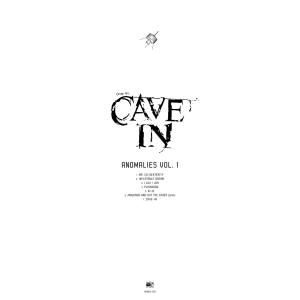
Anomalies, Vol. 1 is a compilation album by the American rock band Cave In. The album was officially released on December 14, 2010 through Hydra Head Records, however copies could be obtained one month earlier on Black Friday. Despite its title, Anomalies, Vol. 1 is actually the second release in Cave In's Anomalies series, which a grouping of releases that compile previously unreleased or rare tracks. Released earlier in 2010, Anomalies, Vol. 2 was a live album of a recorded performance from 2003.
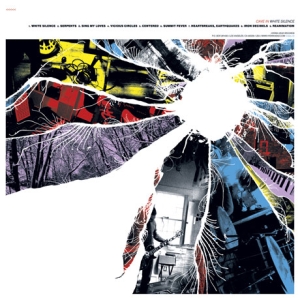
White Silence is the fifth studio album by the American rock band Cave In. The album was released on May 24, 2011 through Hydra Head Records. White Silence was listed as one of Decibel magazine's most anticipated albums of 2011.
Mutoid Man is an American heavy metal band formed in 2012 in Brooklyn, New York City by Cave In vocalist/guitarist Stephen Brodsky, Converge drummer Ben Koller and bassist Nick Cageao. They have released two EPs and three studio albums to date. AllMusic described their sound as metalcore but noted that it engages not just with hardcore punk and heavy metal but also rock and roll, math rock, progressive rock, and psychedelic music. Pitchfork celebrated their debut album Bleeder for "[embracing] both numbskull hard rock and cerebral progressive metal, at a time when the two approaches have become almost mutually exclusive in heavy music."

Stephen Brodsky is an American rock musician, best known as a member of Cave In, Mutoid Man, New Idea Society and Old Man Gloom. He also has a solo career and is a former member of Converge, Kid Kilowatt, Parasite and Pet Genius.
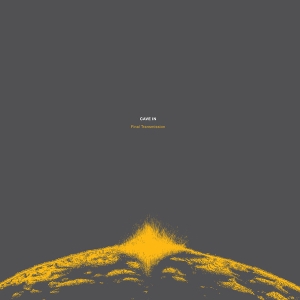
Final Transmission is the sixth studio album by the American rock band Cave In. The album was released on June 7, 2019, through Hydra Head Records. Final Transmission is Cave In's first studio album in eight years since 2011's White Silence and marks the final recordings of bassist Caleb Scofield, who died in a car crash a year prior to the album's release. The band promoted the album with online streams of "All Illusion" and "Shake My Blood" prior to its release. It is the final album released by Hydra Head Records before the label folded in 2020, with Cave In's back catalogue being returned to them.

Heavy Pendulum is the seventh studio album by American rock band Cave In, released on May 20, 2022, through Relapse Records. This is the band's first album with bassist/backing vocalist Nate Newton, though late bassist/vocalist Caleb Scofield still has a presence on the record.
















